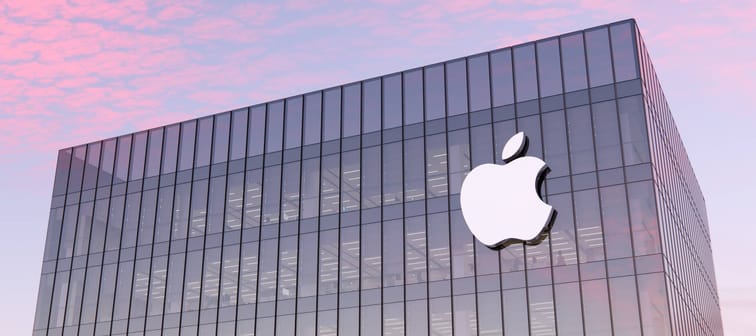Growing pains
The BNPL sector has seen meteoric growth in a very short time. The global market hit $120 billion last year, according to GlobalData. That’s up from just $33 billion the year before.
“Apple has a tendency not to be a first mover and to make a move into a space only when it sees a clear opportunity and the potential for further growth,” says McKee.
Though the sector has seen massive growth quickly, it is facing some new challenges.
Klarna — which saw its gross merchandise volume reach $80 billion last year, up from $53 billion in 2020 — announced plans to lay off 10% of its workforce last month.
Meanwhile, Affirm’s share price has plummeted this year from a peak of $168 in November to about $18 today.
Kiss Your Credit Card Debt Goodbye
Having a single loan to pay off makes it easier to manage your payments, and you can often get a better interest rate than what you might be paying on credit cards and car loans.
Fiona is an online marketplace offering personalized loan options based on your unique financial situation.
When you consolidate your debt with a personal loan, you can roll your payments into one monthly installment. Find a lower interest rate and pay down your debt faster today.
Get StartedPressure from rivals and regulators
The industry is also attracting regulatory scrutiny over concerns that BNPL companies are operating outside of consumer protection rules.
“Buy now, pay later is not being positioned to consumers as a form of debt,” says McKee.
Regulators in the U.S., Europe and Australia are investigating several BNPL companies and aiming to put up guardrails in how they do business. The U.S. Consumer Financial Protection Bureau opened an inquiry into five BNPL companies at the end of last year.
“It's a challenging time for buy now, pay later providers. There's a number of forces that they're working against,” says McKee.
Rising interest rates and a potential recession are also putting pressure on the sector.
“I think for all consumer lenders, like BNPL included, there's certainly more concern as the economy slows,” says Michael Taiano, senior director at credit ratings agency Fitch Ratings.
“And potentially you have the risk of higher unemployment coming, people losing their jobs, and therefore defaults and delinquencies start to increase. I think for BNPL, there’d be a little bit of elevated concern, just because that product hasn't really, in its current form, been through a true credit cycle before.”
Add to that an oversaturated market, McKee says.
“With over 100 different buy now, pay later providers in existence today, it's really a land grab for merchants and consumers, and the buy now, pay later providers don't really have many avenues to increase their margins,” says McKee.
Business go beyond BNPL
That means companies need to diversify, McKee says, arguing that a standalone BNPL service won’t be enough to make a decent profit or keep shareholders happy.
“You're seeing some providers moving into longer-term financing, offering an installment payment capability with an interest rate attached to it,” says McKee.
“So instead of paying off that purchase in four interest-free installments, perhaps the consumer now has 12 months to pay it off … Diversifying the varieties of financial products [a company] has is one avenue.”
Klarna has already done this: It has a shopping app that allows you to search items and brands and connects you to the website to buy it. It also allows you to track your purchases, and any outstanding payments you have.
Many BNPLs are now offering debit cards that link to a customer's existing bank account. Purchases made through the card can be turned into a pay-in-four transaction within a limited time.
“I would say that's another opportunity, just sort of broadening out that commerce value proposition,” says McKee. “So they play a role not just at the end of the purchase, but you know, increasingly towards the beginning of that shopping journey.”
For Apple, that strategy is readymade.
Meet Your Retirement Goals Effortlessly
The road to retirement may seem long, but with WiserAdvisor, you can find a trusted partner to guide you every step of the way
WiserAdvisor matches you with vetted financial advisors that offer personalized advice to help you to make the right choices, invest wisely, and secure the retirement you've always dreamed of. Start planning early, and get your retirement mapped out today.
Get StartedHeld in Apple’s ecosystem
Pay Later will allow Apple to create one more service that will keep you in their space for longer, says Rajat Roy, associate professor of marketing at Bond University in Australia.
“Apple is trying to get into consumer finance because that's a win-win situation,” Roy says. “It helps them to sell their product, it also helps them to sell product from other retailers… So it's a tactical and strategic way to grow their market share.”
That wrap-around service will make it even easier for you to make purchases, including ones you might not be able to afford, says Roy.
Studies show that people using BNPL tend to spend more than they would have if they were paying in one full payment.
Easy access to goods with seemingly low consequences is especially tempting for millennials and Gen Z — the biggest users of BNPL services, according to Global Data. And as the price of everything climbs, so does that temptation.
“You can see this will drive the consumerism side of things. You know, it triggers materialistic purchases, it triggers luxury purchases, it triggers a consumerism culture, right? But what also Apple has cleverly done, it has facilitated behavior by making the behavior much easier,” says Roy.
'A very risky situation'
Roy argues the danger of overspending with BNPL is significant, and what seem like innocuous purchases can quickly get out of control.
“Even without realizing, small purchases here and there, it all adds up,” Roy says.
“So ultimately, when you look at your financial situation, you realize, ‘Oh my God, now I have racked up a huge debt, more than I can really afford,’ right. And obviously, if you default payments, your credit rating is not that solid, your future is affected.”
The evidence that putting off payments can be harmful is stacking up.
In Australia, one in five BNPL users missed at least one payment in the past year, according to a 2020 report by the Australian Securities and Investment Commission.
And in the U.K., 40% of people who used a BNPL service in the last year borrowed money to make a payment, according to a recent study by Citizens Advice. Of those people, 23% used a credit card, 9% used a bank overdraft and 7% borrowed from their friends and family.
“It all adds up,” Roy says. “It might lead to a very risky situation. But the power of Apple, the power of consumerism is so huge, and since the pain of payment is gone, with our easy method of Apple Pay Later, people don't realize that.”
Sponsored
This Company Will Help Nearly Anyone Get Rid of Credit Card Debt
Do you feel like paying off your credit card is a constant grind, with no end in sight? You’re not alone. A personal loan offers lower interest rates and fixed payments, making it a smart choice to consolidate high-interest credit card debt. It helps save money, simplifies payments, and accelerates debt payoff.
Fiona is a free online service that shows you the best lending options to pay off your credit card debt fast — and save a ton in interest.







